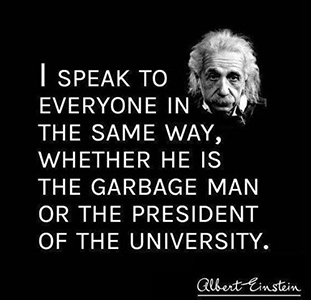Come si dice “se” in inglese ~ if vs. whether
Come forse già saprai, ci sono due modi in inglese di rendere la congiunzione se: questi sono if e whether. A volte vanno bene entrambi, altre volte no. Quindi bisogna sapere quando usare l’una, quando usare l’altra e quando possono andare bene entrambi. In realtà si può semplificare il problema scegliendo if quando c’è una condizione e in tutti gli altri casi whether. Non è male come scappatoia, sicuramente da usare se ti trovi con le spalle al muro linguistico, ma la realtà è un po’ più complessa e vale la pena conoscerla. Vediamo le varie possibilità.
WHETHER ~ scelta unica
Whether presenta due possibili alternativi e lo fa in uno di due modi diversi. O propone entrambe le azioni con la formula whether…or…, oppure propone una sola azione con la formula whether…or not quando l’azione alternativa è soltanto quella di non fare l’azione proposta per prima. Spesso con questo secondo costrutto la parte or not viene ommessa in quanto implicito, come in italiano.
🔵 Whether è l’unica scelta valida quando se viene seguito da un infinito (qui si sbaglia spesso).
- I haven’t decided whether to buy a new car or a second hand car.
- Non ho deciso se comprare una macchina nuova o di seconda mano.
- Tom wasn’t sure whether to tell his father (or not).
- Tom non era sicuro se dirlo a suo padre.
- We were wondering whether to eat (or not) before going out.
- Ci stavamo chiedendo se mangiare prima di uscire.
🔵 Whether è l’unica scelta valida quando se viene subito dopo una preposizione.
- They were talking about whether it was better to buy a house or invest the money.
- Stavano discutendo se fosse meglio comprare una casa o investire il denaro.
- The results depend on whether you do the exercises correctly (or not).
- I risultati dipendono se fai gli esercizi correttamente.
- The councillors could not agree about whether a new bridge was necessary (or not).
- I consiglieri non riuscivano a mettersi d’accordo se un nuovo ponte era necessario.
🔵 Whether è l’unica scelta valida quando se fa parte del soggetto all’inizio della frase.
- Whether he comes or not makes no difference to me.
- Se viene o no non fa differenza per me.
- Whether we sack him or give him another chance is an important decision.
- Se licenziarlo o dargli un’altra possibilità è una decisione importante.
- Whether Arsenal wins or loses today could decide the championship.
- Se Arsenal vince o perde oggi potrebbe decidere il campionato.
IF ~ scelta unica
If premette una condizione che deve essere soddisfatta prima che un’altra azione possa essere compiuta. Ci sono quattro tipi base di frase condizionale in inglese che si possono studiare in dettaglio QUI.
🔵 If è l’unica scelta valida quando si tratta di una frase condizionale.
- If you ask him, Bob will help you
- Se glielo chiedi Bob ti aiuterà.
► La condizione è che devi chiedere prima, se vuoi che Bob ti aiuti.
- If I knew his phone number, I would call him.
- Se conoscessi il suo numero di telefono, lo chiamerei.
► La condizione è che dovrei conoscere il suo numero di telefono per poterlo chiamare.
- If Tom had seen the lorry, he would have stopped.
- Se Tom avesse visto il camion, si sarebbe fermato.
► La condizione è che Tom avrebbe douto vedere il camion per potersi fermare.
Non importa che tipo di periodo ipotetico sia – possibile, improbabile, irreale, impossibile – c’è sempre una condizione che rende if l’unica scelta valida.
WHETHER / IF ~ scelta libera
Normalmente la scelta tra whether e if è libera quando la frase in questione riguarda una domanda di tipo si o no. Possono essere frasi di tipo whether/if…or not dove “or not” rimane spesso implicito (primo tipo), oppure delle frasi dove vengano esplicitate tutte e due le possibilità (secondo tipo).
🔵 Primo tipo:
- I don’t know whether/if I can come to the exhibition on Saturday (or not).
- Non so se posso venire alla mostra sabato.
► In questo caso la domanda è: “Puoi venire alla mostra sabato?”
- I wonder whether/if Bob would be interested in working this weekend (or not).
- Mi chiedo se a Bob interesserebbe lavorare questo fine settimana.
► In questo caso la domanda è: “A bob interesserebbe lavorare questo fine settimana?”
- I’m not sure whether/if the house will be ready in time for the summer holidays (or not).
- Non sono sicuro se la casa sarà pronta in tempo per le vacanze estive.
► In questo caso la domanda è: “La casa sarà pronta in tempo per le vacanze estive?”
🔵 Secondo tipo:
- Bob couldn’t decide whether/if it was better to stay or to go.
- Bob non riusciva a decidere se fosse meglio rimanere or andarsene.
► In questo caso la domanda è: “È meglio rimanere o andare?”
- I would like to know whether/if this jacket is made in Italy or in China.
- Vorrei sapere se questa giacca è fatta in Italia o in Cina.
► In questo caso la domanda è: “Questa giacca è fatta in Italia o in Cina?”
- Nobody dared to ask whether/if the closure of the factory was temporary or permanent.
- Nessuno osava chiedere se la chiusura della fabbrica fosse temporanea o permanente.
► In questo caso la domanda è: “La chiusura della fabbrica è temporanea o permanente?”
N.B. Quando c’è una scelta libera tra whether e if è sempre preferibile usare whether quando ti trovi in un contesto formale, sia scritto che parlato.
Your comments are always very welcome.




Nice blog thhanks for posting
LikeLike
😀👍
LikeLike
Hi Prof, about the different use of WHETHER and IF, I’m not sure to have well understood when you talk about the “FREE CHOISE”. It seems me that I MUST use wheter in a DOUBTFUL sentence, and I have to use IF in a HYPOTHETICAL sentence.Both ways I described above, are included in the sentences of the first and second type of “free choice”, or this is my misinterpretation? Thank you
N. B: I hope I have said everything correctly
LikeLike
“I’m not sure whether/if you have understood fully.”
If you look carefully, you will find that in the last section (scelta libera) there are no “conditional” sentences. They are all examples of “yes/no” choices. In this case “whether” is the best choice in a formal situation, but in everyday English we often replace “whether” with “if” in this kind of situation.
LikeLike
Many thanks Prof, think again to deepen the problem. Good Palm Sunday and Happy Easter.
LikeLike
Bernadino, you can’t “deepen the problem” but you can “deepen your understanding of the problem”.
LikeLike
Whether you believe me or not, I was just waiting for an article about this. Thanks a lot, prof!
LikeLike
If you’re telling the truth, then I’ll believe you! 😀
LikeLike
Thanks. Your lessons are always usefull and clear. Compliments.
LikeLike
Thank you, Marcella. Careful with “useful” (una sola ‘l’). 😀
LikeLike
Thanks !
Einstein, one of the men of my life !!! :))
LikeLike
A great example for everybody.
LikeLike
Great explanation!
LikeLike
Thanks Roberta. One of my students here on Ingliando asked me for this. I hope it’s useful.
LikeLike
it sure is!!!!!
LikeLike
😀
LikeLike